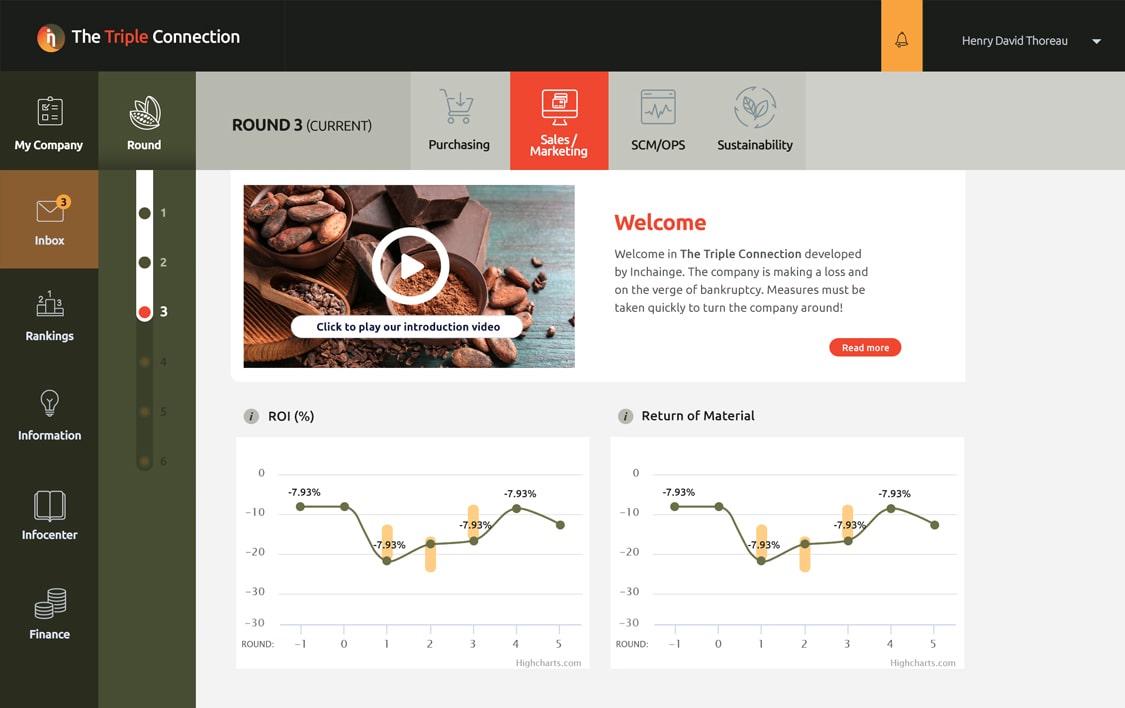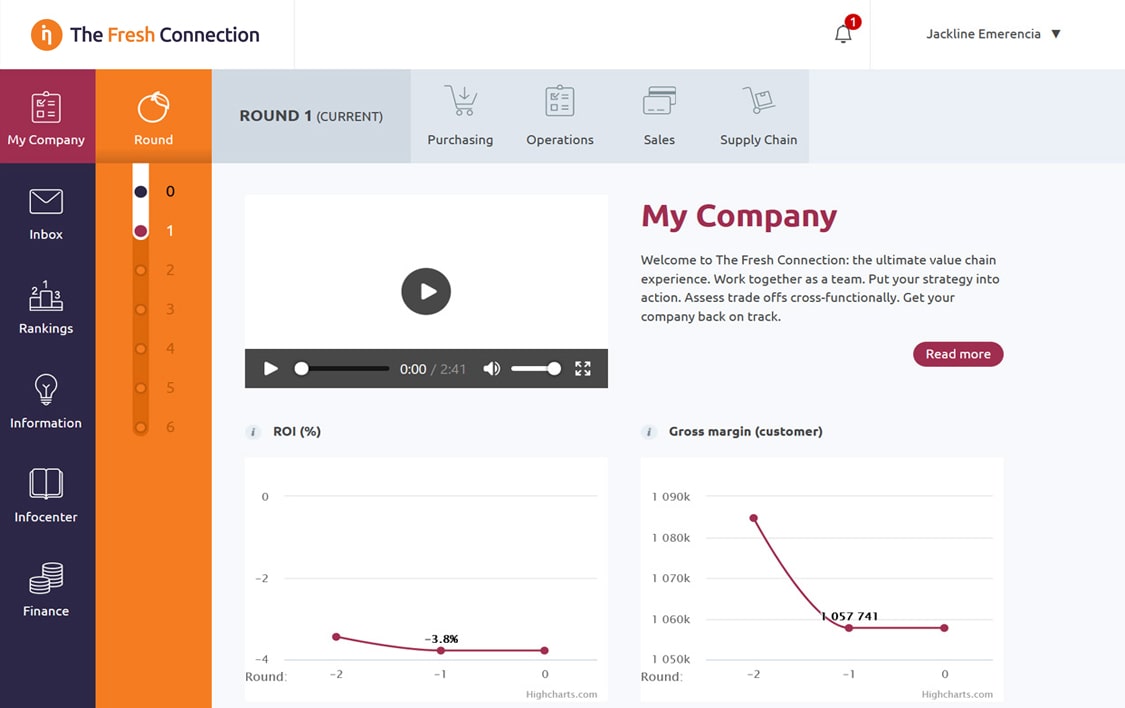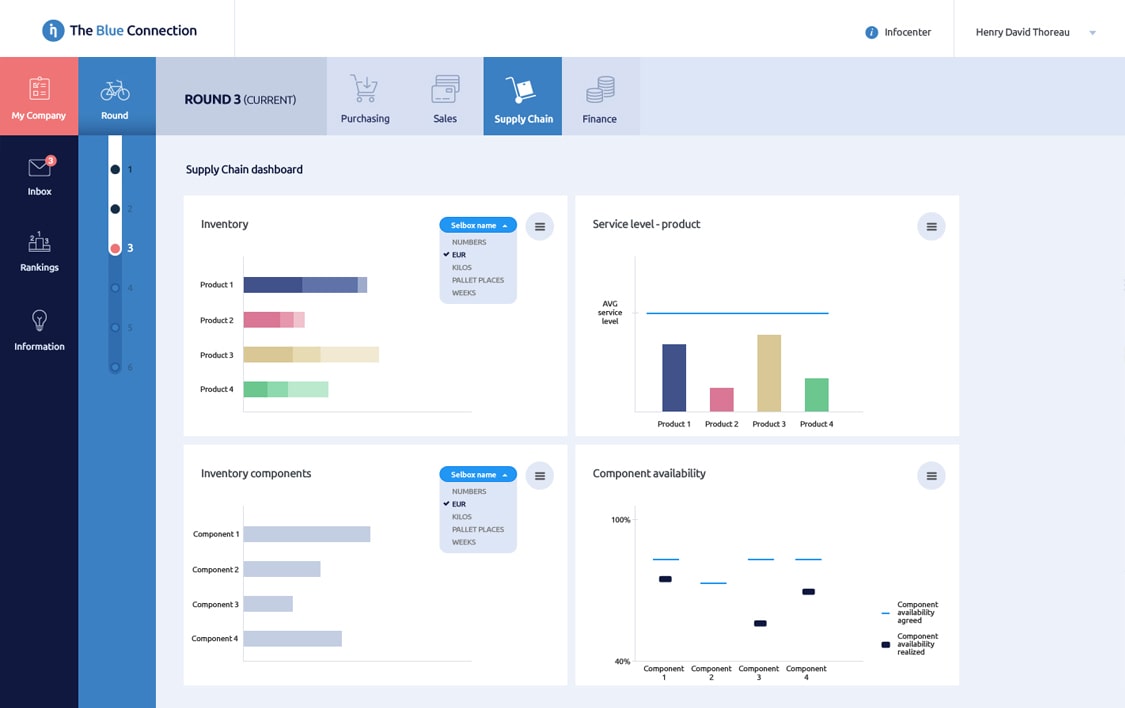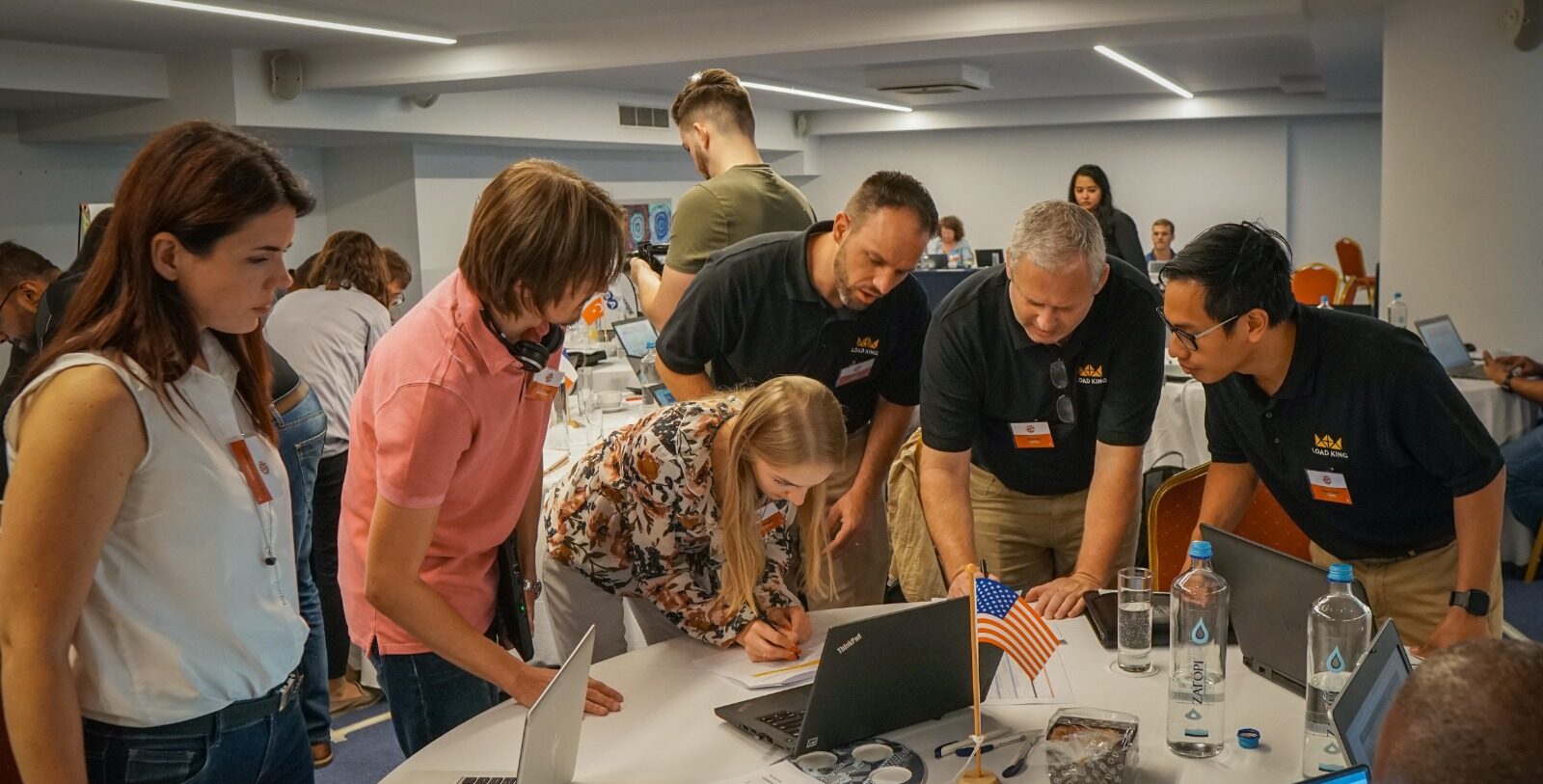
Experiential Learning at Inchainge
Our Approach: Learning by Doing
Exploring the Effectiveness of Experiential Learning and Business Games in Educational and Corporate Environments

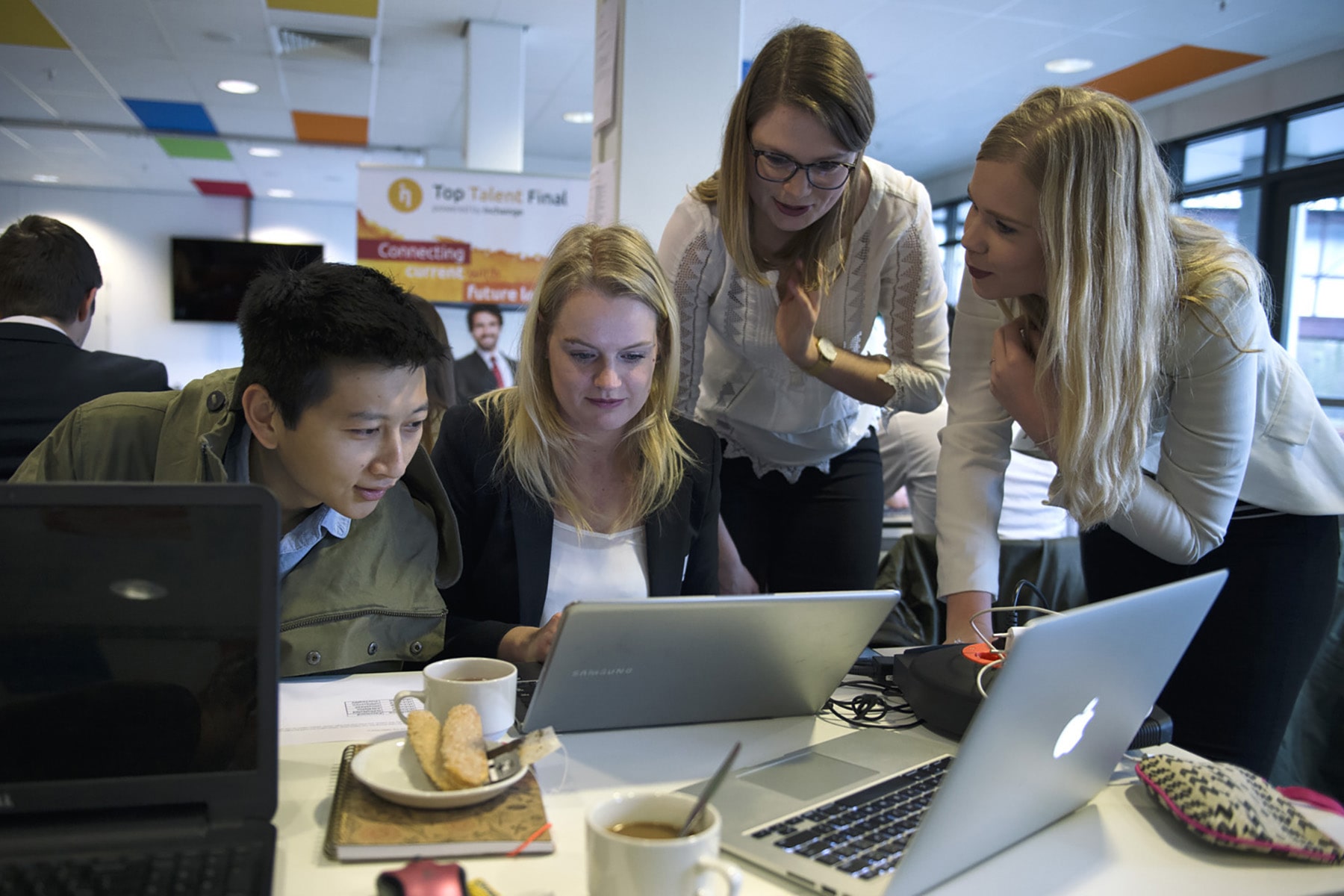
Learning approach
Experiential Learning: A Catalyst for Real-World Skills Development
Experiential Learning, also known as ‘Learning by Doing’, is an active and hands-on learning approach used in education and professional training. It helps to deepen the understanding of complex concepts in real-life situations.
It’s like mastering basketball where skills are best developed through active practice rather than just studying theory.
Like in basketball, once you learn how to dribble, you’ll never forget how.
This approach is at the heart of Inchainge’s philosophy and all of our products.
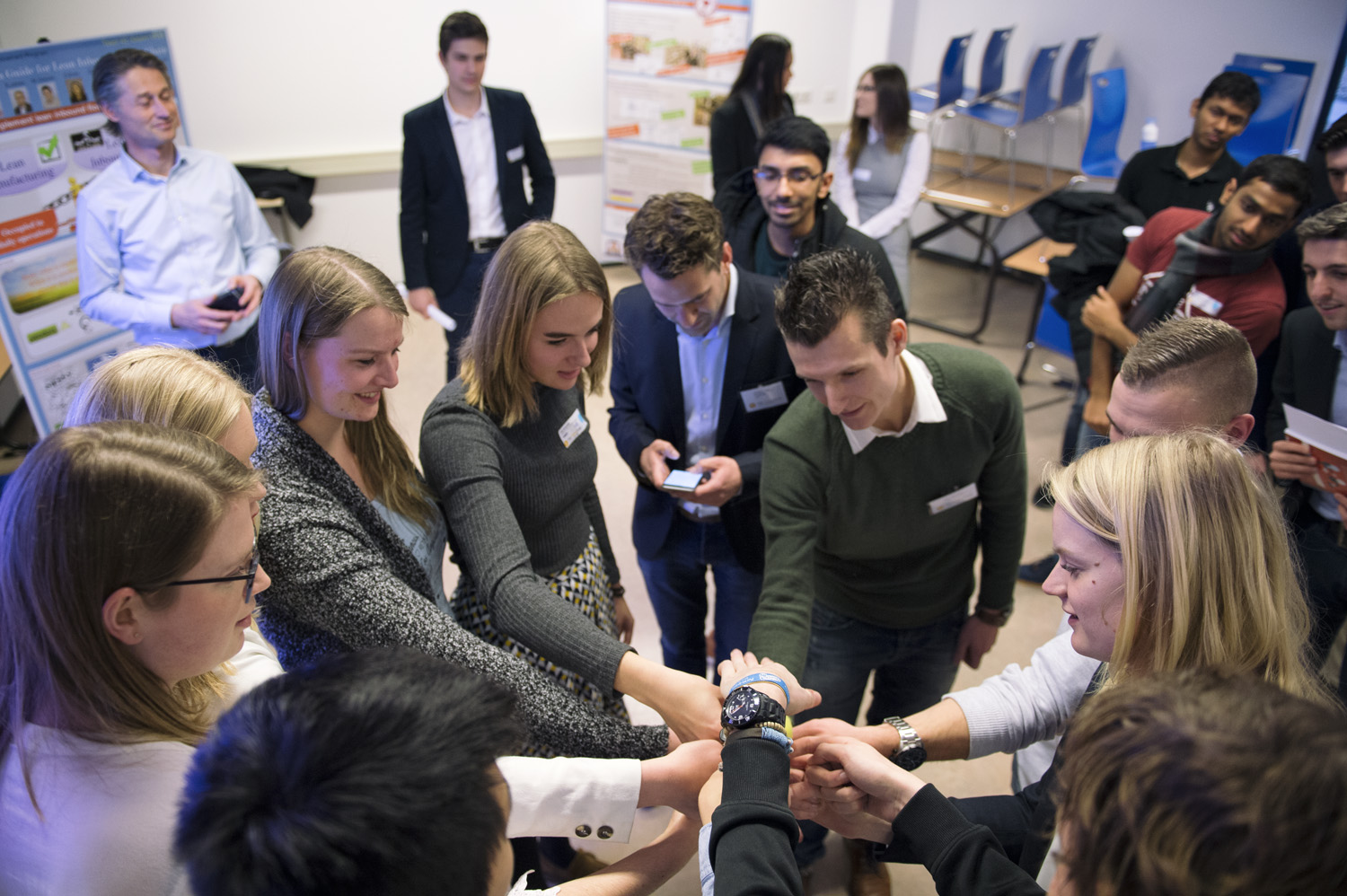
Scientific Evidence
The Scientifically Proven Way of Effective Learning
The advantages of learning by doing are not just anecdotal; they are supported by quantitative data and research. This is why we truly believe that going through an experience, will result in a better understanding. Our learning experiences are highly impactful as they allow learners to apply theory to practice in a safe virtual environment.
The 70-20-10 Framework
This widely recognized model breaks down how we learn best: 70% from hands-on experiences, 20% from interactions with others, and 10% from formal study.
Developed by McCall, Lombardo, and Eichinger, it highlights the importance of real-world experiences in professional development.
Think of it like learning to ride a bike: while reading about it helps, skills are developed through actual riding and guidance from others.
Learn more about the 70-20-10 Framework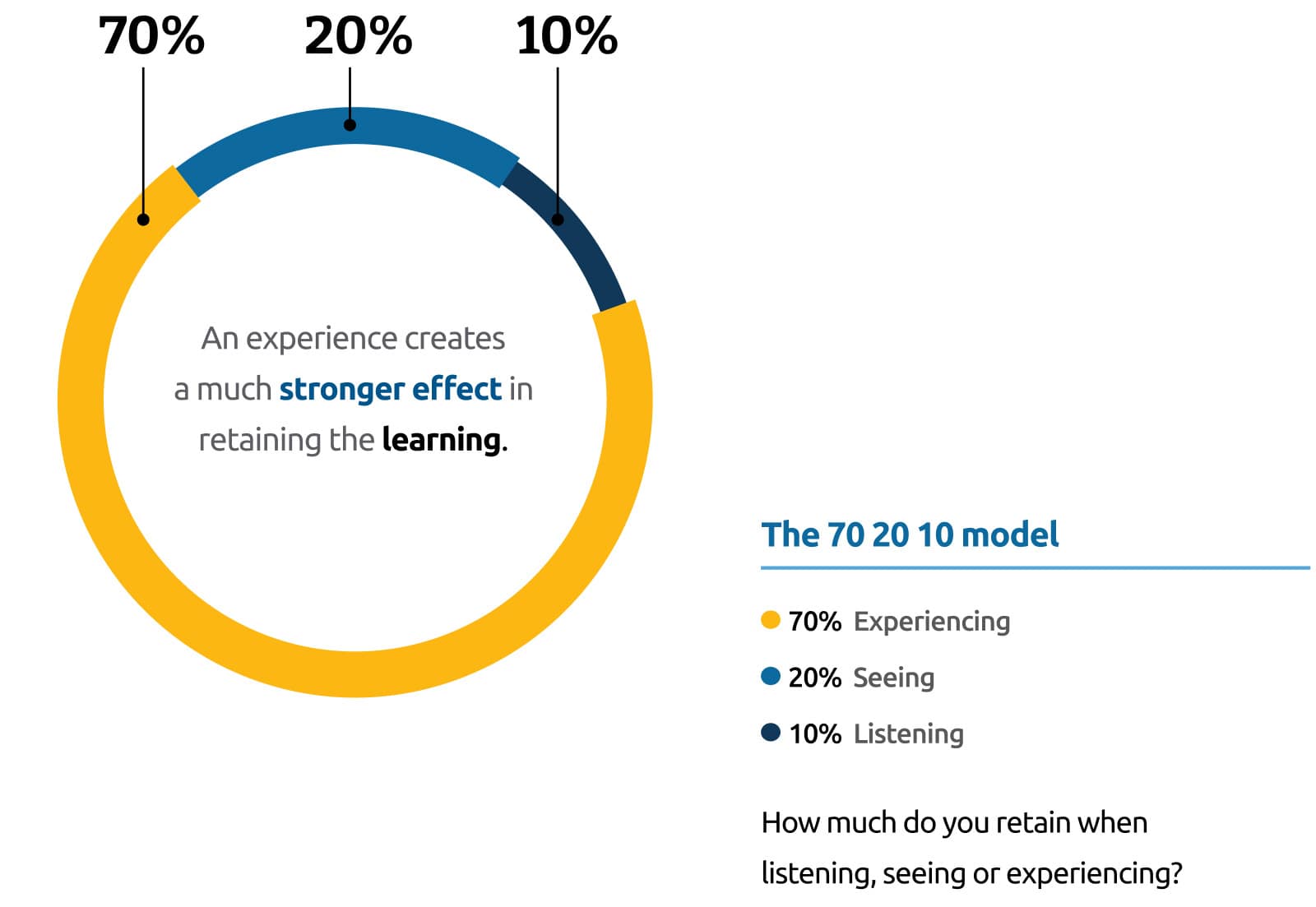
Kolb's Cycle
Kolb’s Experiential Learning Cycle, created by David Kolb, outlines a simple yet powerful way we learn from doing.
It’s a four-stage journey: starting with an actual experience, then pausing to think and reflect, drawing lessons from it, and finally, trying out these new ideas in different situations.
This cycle is a natural and effective way to learn, promoting continuous improvement from practical experiences.
Learn more about the Learning Cycle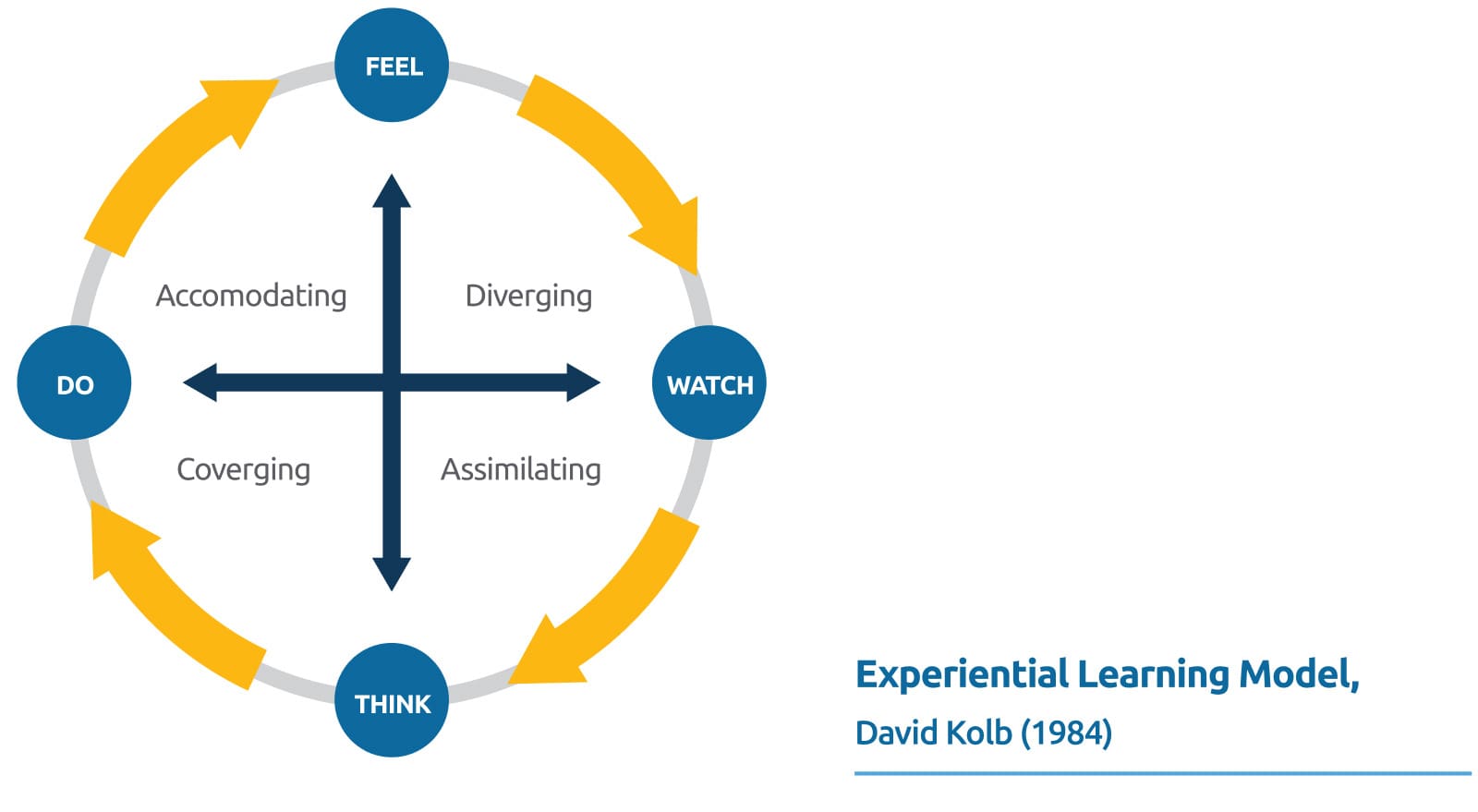
Advantages
Experiential Learning vs. Traditional Learning
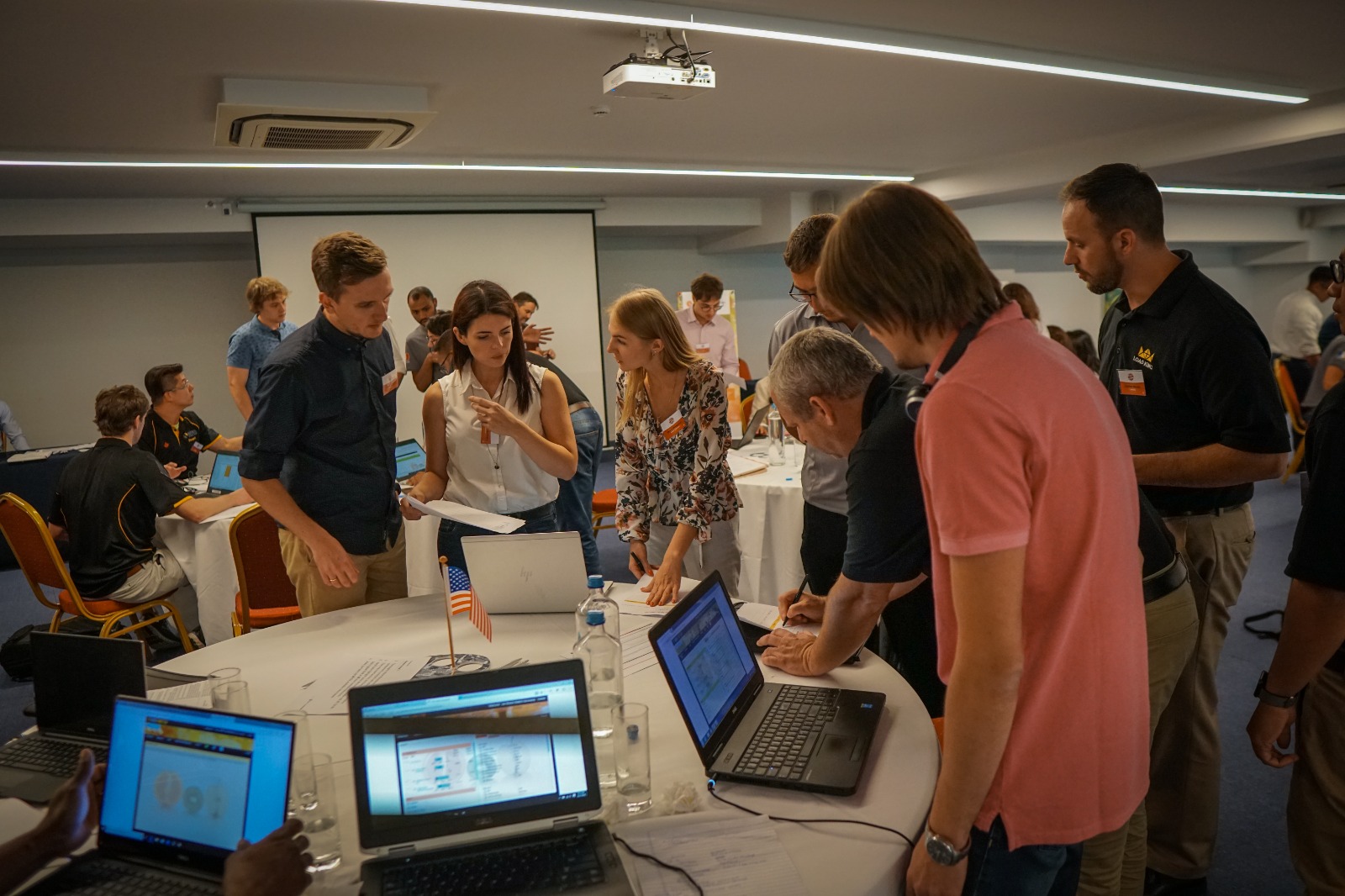
-
Active Participation
Experiential learning thrives on active participation, with knowledge flowing both ways and learners are encouraged to exchange knowledge.
-
Practical Application
Learners apply theoretical knowledge in real-world scenarios, fostering a deeper understanding of concepts.
-
Team Experience
In team-based settings, learners benefit from each other’s experiences, creating a collaborative and enriching environment.
-
Higher Learning Retention
Hands-on experiences contribute to higher retention rates, as learners remember more through active involvement.
-
Lack of Engagement
Traditional methods often rely on passive learning, leading to disengagement and reduced motivation among learners.
-
Limited Application
Classroom-based or lecture-style learning tends to prioritize theoretical understanding over practical application, resulting in a gap between knowledge and its real-world use.
-
Memorization Over Understanding
Emphasis on rote memorization in traditional settings may promote short-term retention but often fails to foster a deep understanding of concepts.


Educational and Training Approach
Learning by Doing in Education and Training Programs
Educational institutions and organizations across the globe are recognizing the importance of providing learners with hands-on experiences to tackle real-world challenges. This is crucial in understanding complex topics such as Supply Chain Management and Sustainability. These fields require practical application to overcome real-world challenges, rather than solely relying on theoretical knowledge. This is exactly what is accomplished by integrating experiential learning into their learning approach.
Business Simulation Games
Learning by Doing through Game-based Learning
Business simulation games are all about ‘Learning by Doing’. The four business games we developed place you in the action, allowing you to make decisions as if you were in real life in a supply chain, operations, purchasing, sales, sustainability, or finance role.
This hands-on approach mirrors actual business scenarios, enabling learners to gain practical insights into the complexities of business strategy and execution.
By simulating real-life challenges and promoting active participation, business games ensure that knowledge is not only acquired but also deeply understood and retained for application in real-world situations.
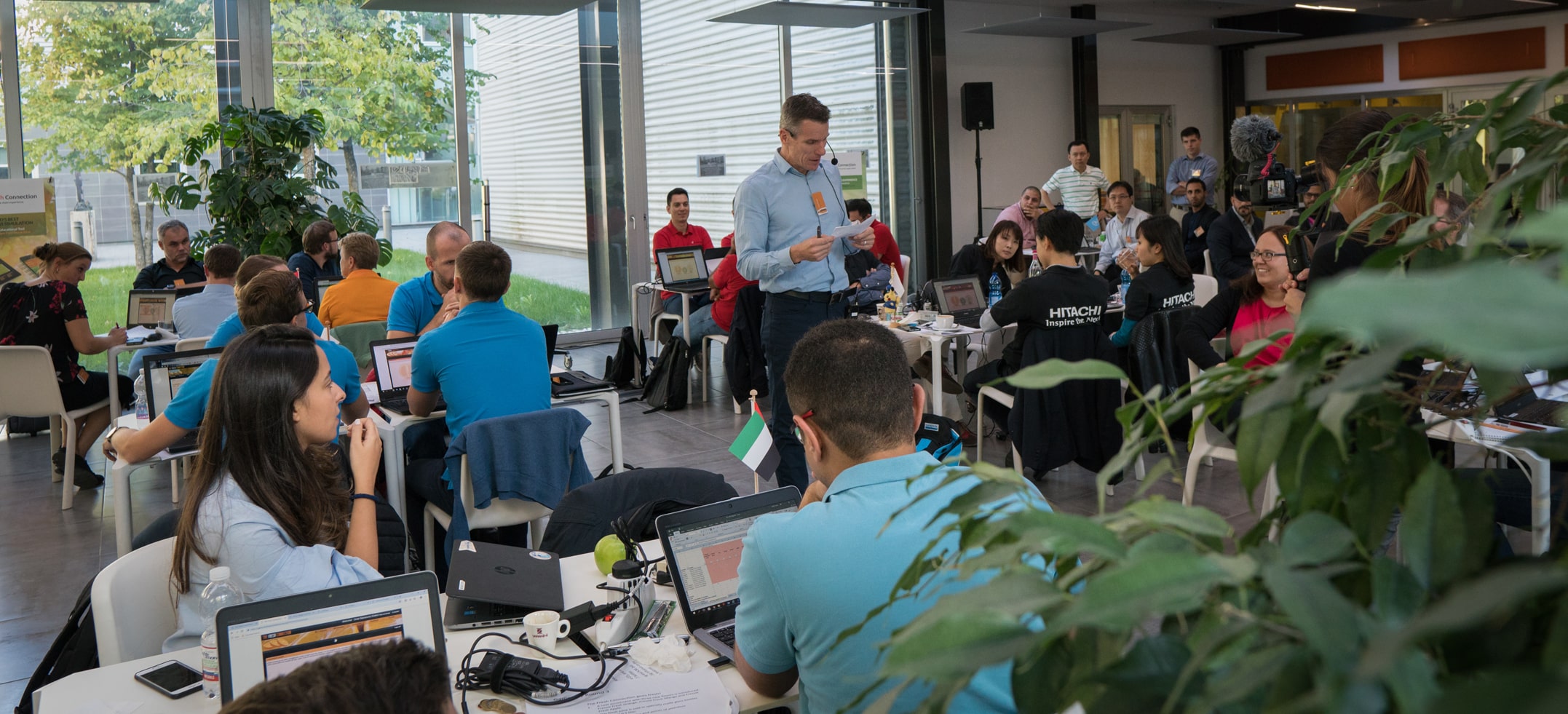
Our Approach
Learning by Doing at Inchainge
Our game-based solutions embody the core principle of experiential learning. Learners dive into a virtual company dealing with various value chain and sustainability challenges, taking on managerial roles and shaping the company’s future through critical decisions. Through these decisions, participants learn from successes, failures, and trade-offs in a risk-free environment. This immersive experience equips them to handle real-life situations, enhancing their professional skills.
Testimonials
Inspiring Customer Experiences
Discover how our customers achieved Academic and Professional Success. Explore Real-Life Stories about the Transformative Power of Experiential learning.
Every salesperson wants to be the best at selling, but if he does so to the detriment of the rest of the company there's no long-term future. This becomes crystal clear by playing The Fresh Connection.

Niels Meijer
International Sales Manager NW-Europe at Lamb WestonPlaying the game gives us opportunities to give feedback and help students improve: we can zoom in on specific issues and give targeted advice. Team dynamics play a big role in our educational goals. We aim to create global citizens who can collaborate effectively, regardless of background or cultural differences. This hands-on approach helps develop important soft skills.
Oliver Ntenje
Lecturer in Blockchain Technology, Senior Lecturer and Researcher of Logistics at HAN University of Applied Sciences
Canon makes collaboration measurable
Intensive collaboration between various disciplines is a vital prerequisite for Sales & Operations Planning (S&OP). But how do you create the right mindset? Canon Europe arranged for 80 of its employees across five different time zones to take part in an in-company version of The Fresh Connection.
Read the story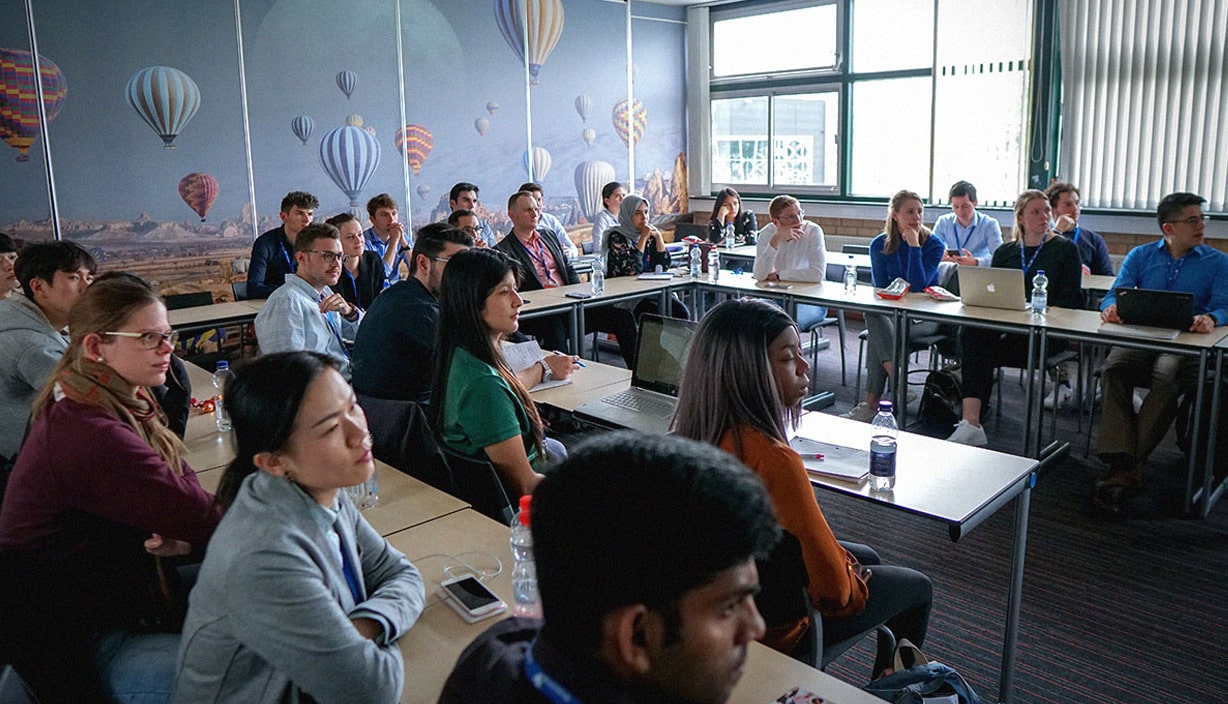
Empowering Students with Real-World Experience
Stephan Verhasselt is a lecturer at FHNW University of Applied Sciences in Switzerland, where he has been teaching for over 10 years. With a background in mechanical engineering and a PhD in supply chain management, Stephan brings a wealth of industry experience to his classes. His goal is to prepare his students for the real world by providing them with hands-on learning experiences.
Read the storyWhat makes Inchainge a great choice for you?
Discover why Inchainge’s innovative game-based solutions are the best choice to enhance the learning journey in your curriculum courses or training programs.

Developing the Next Generation of Value Chain Leaders
Discover how our game-based learning solutions, coupled with our years of experience, can provide you and your students with the most optimal learning experience.
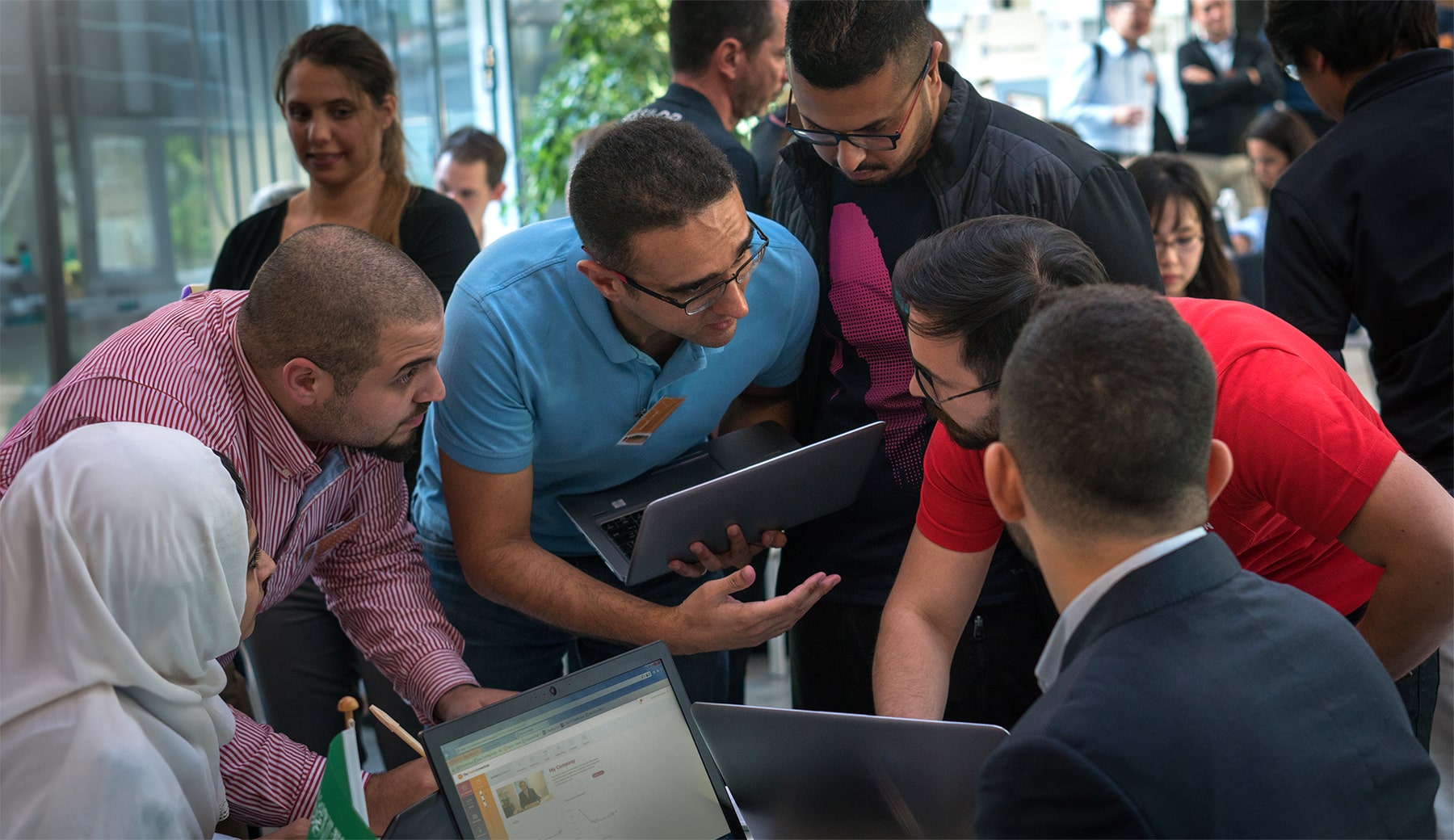
Empower your Workforce and Accelerate Change in your Company
Discover how our unique training blend of business games, peer-to-peer collaboration, and seamless training transfer can create the biggest impact in your workforce.

